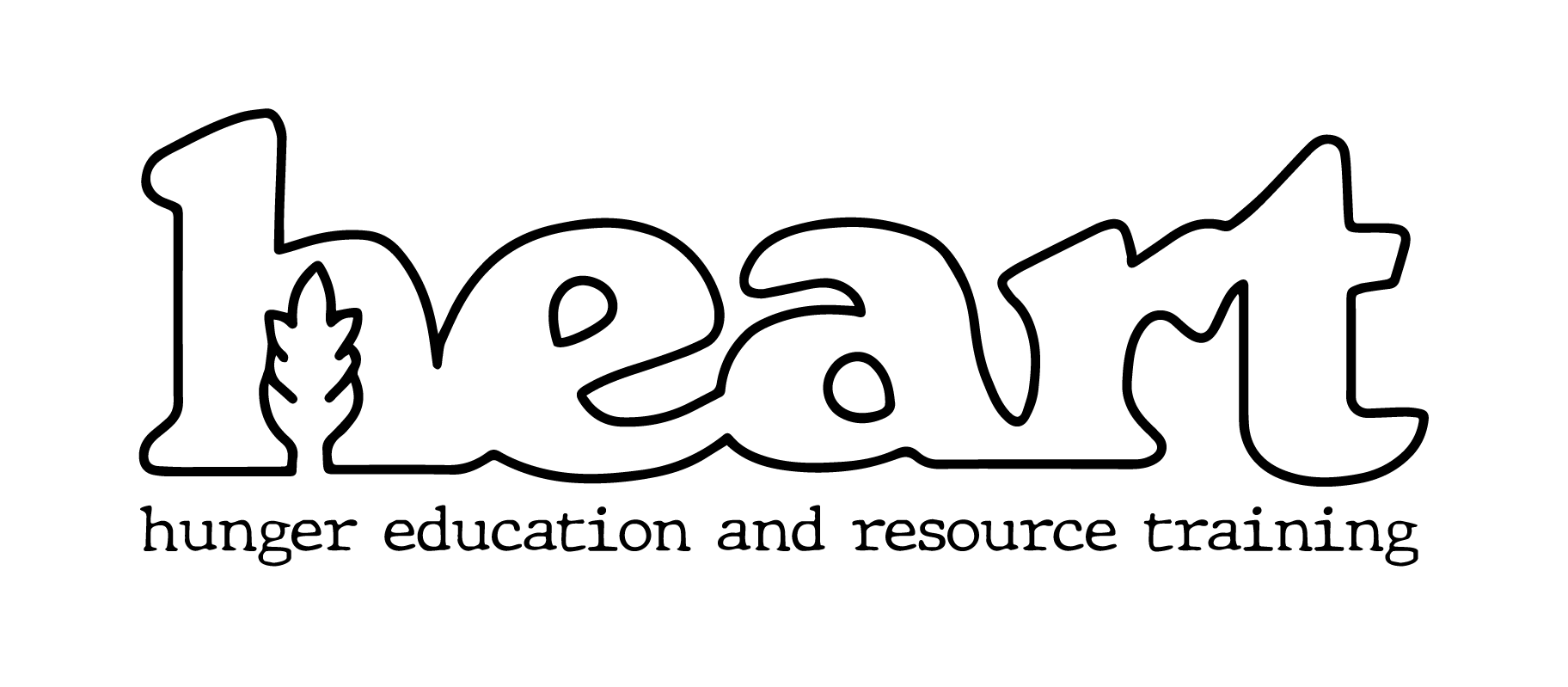Student FAQs
What is a typical day like at HEART?
A typical day in the HEART program is full...
A typical day in the HEART program is full and you need to come prepared to participate from 7:00 a.m. to 6:30 p.m. Approximately 40% of your time will be spent in classroom studies and 60% in practical hands-on activity.
To give you a realistic experience of being in an isolated and foreign country, all students will be restricted from leaving the HEART village during the first four weeks of the semester. That restriction will begin when you arrive at the Village. Therefore, all phone calls and shopping must be completed before entering the HEART village. You are, of course, permitted to receive and send mail weekly during this time. Should an emergency arise, your family may contact you through the HEART office. The success of this experience depends on the willingness of each student to cooperate.
What is the difference between Phase 1, 2 & 3?
Throughout the duration of the academic programs...
Throughout the duration of the academic programs, students participate in academic classes and hands-on learning activities. In addition to the academic program, HEART strives to help students develop skills in cross-cultural adaptation, problem solving and living in community. We do that through dividing the terms into phases.
During Phase 1, students have very limited contact with people outside the village. Phone calls, texting and email are not permitted. (Emergencies can be directed through the office.) Students may write letters to family and friends and they receive mail on Fridays. They do not leave the village and visitors are not allowed. Students do not use electricity during Phase 1. This intentional portion of the program simulates the isolation and drastic change that cross-cultural workers often experience when they enter their host community. This gives students an opportunity to work through that period of adjustment in a safe place. In addition, breaking away from one’s outside support system significantly increases the community relationships that are built among the students. Phase 1 lasts approximately 1 month during the semester program and for the entirety of the 3-week program.
In Phase 2, students are permitted to leave the village and others are welcome to visit. Electricity is restored to the village and students may use phones and the internet once again. Students often experience reverse culture stress as they re-enter the ‘world’ after living a very isolated and simple life during Phase 1. With increased accessibility to their outside lives, students are pulled in multiple directions and must work through the different expectations that each member of the community has. Conflict often arises during Phase 2 and students are given opportunities to develop skills in conflict resolution. Phase 2 occurs only during the semester program and lasts approximately 1 month.
In Phase 3, students develop a governing system for the village. They take over leadership of the different areas (animals, garden and kitchen) and ensure that the village runs smoothly. Phase 3 occurs only during the semester program and lasts about 1 month.
Do I have to be a Christian to attend?
The academic programs at HEART...
The academic programs at HEART are specifically geared towards preparing Christians for cross-cultural service. While we do not refuse applicants simply because they are not followers of Jesus Christ, all students should be prepared to fully participate in all aspects of community life, including but not limited to daily devotions and weekly worship services.
Those persons wanting the training that HEART has to offer without the spiritual focus may be interested in participating in our periodic community events or organizing a skills-focused MAV group. See the schedule of upcoming community events or check out the MAV availability schedule.
What can I do to prepare mentally?
Attitude plays an important role...
Attitude plays an important role in what and how much you will obtain from your experience at HEART. Willingness to learn, discipline to study, and readiness to try new ideas (and foods!) are important. The Beatitudes in Matthew 5:3-12 are the “being attitudes.” Read them as, “I should be…”
Do I have to participate in all classes and assignments?
Throughout the duration of the academic programs...
YES! Participation in the activities and classes of the HEART community is very important. One of the key ingredients to the HEART experience is living and working in community. Whether you take the classes for credit or not you must participate like any other student. The program is designed to help and train you so you must participate to receive that training.
What can I do to prepare spiritually?
Most students who arrive at the HEART village...
Most students who arrive at the HEART village feel that God has called them to serve on a foreign mission field or to some other specialized ministry. The call to service is just the beginning; your time at HEART will be a part of your preparation for that service.
If you have not already established a daily devotional time, now is the time to start. Though HEART students have daily devotions together, you are encouraged to have a personal time alone with the Lord. The spiritual strength of each individual is a key factor in the successful bonding and relating of the whole group.
Bathe yourself and the program in prayers. Pray for yourself – that God will prepare you for the HEART experience and give you a desire and eagerness to learn all that He has for you. Pray for the other students who will be living, working, and studying with you. Pray for the faculty and staff as they prepare the projects and material that will be presented during the semester.
Prepare for community dynamics by learning what God has to say about living and working in unity and harmony with one another. Search out the Scriptures for verses that address the unity of the Body of Christ.
Can I take just one class?
Since the program we have at the present time...
Since the program we have at the present time is designed for the community idea the answer is no. It might be possible that we offer some single classes in the future over extended weekends but at the moment this is not offered.
Do I have to kill an animal?
The answer is no...
How do I get credit for my courses at HEART?
College credit is not awarded through...
College credit is not awarded through the HEART Institute directly, but rather through partnering colleges and universities. Up to 18 credits are available for the semester program and up to 3 credits for the 3 week course. Please contact
academics@heartvillage.org to discuss the possibility of getting credit for your coursework at HEART
Are scholarships available?
Yes! HEART offers a matching church scholarship...
Yes! HEART offers a matching church scholarship. Support (up to $1,000 for the semester program and $200 for the 3 week program) given directly from the student’s local church towards tuition costs will be matched by HEART.
What should I bring?
The following list will assist you...
The following list will assist you in your preparations for life in the HEART village:
Click here for a printable list.
- Bible, personal devotional materials, journal
- Modest clothing that can be worn in layers*
- Modest swim suit for canoe trip
- Sun hat
- Sunglasses
- Rain Gear (especially a good rain jacket that you can wear while working)
- Work Gloves
- Warm Hat/Scarf/Warm Gloves*
- Rubber Boots or Wet Shoes
- Insect Repellant
- Sunscreen
- Toiletries and personal supplies
- Personal Medication
- Ear plugs
- Headlamp and/or flashlight with replacement batteries
- Camera with replacement batteries (you will not be able to recharge batteries during Phase 1)
- Bedding* (including a sleeping bag for the canoe trip)
- Bath towels, washcloths, hand towels for personal use
- Baby Wipes
- Personal Snacks
- Laundry Soap
- Non-electric alarm clock
- Non-electric razor
- Reusable water bottle
- Hammock (optional)
- Notebook, pencils, pens, paper, etc.
- Laptop for use during Phase 2 and 3
- Stationary, stamps and address book
- Musical Instruments, if desired
- Board or card games
- Morale builders, (posters, wall hangings, personal pictures, etc.)
- One casual dress-up outfit for Sunday services and special occasions (i.e. pants and collared shirt for men, skirt or dress for women)
Please remember that all clothing for HEART should be modest and practical for work. It is important to be courteous of your roommate(s) by limiting your personal belongings. May we suggest that in addition to your bedroll, please limit your yourself to two or three pieces of luggage.
*Cabins are not insulated and do not have artificial heat. Coming prepared for the weather with appropriate clothing and bedding is important for your comfort and welfare while staying in the village. Students are always surprised at how COLD the village feels during the winter months.
Do I have to be a missions major to attend HEART?
Students from across the academic spectrum have...
No! Students from across the academic spectrum have benefitted from the HEART program. We’ve had students attend who were majoring in Communications, Education, Nursing, Social Work, Agriculture and many more. If you have a heart for God’s Kingdom and want to be prepared to go wherever He calls you, then you have a place at HEART.
I’m married and have kids. Can we come as a family?
At HEART, we recognize and value the entire family...
YES! At HEART, we recognize and value the entire family gaining skills in cross-cultural adaptation before serving in a developing area. We welcome children of all ages in the village.
The cost of housing and food for a spouse and children is the same as students. If children are under the age of 12, the cost is half.
I’ve already graduated from college. Did I miss my chance to attend HEART?
As long as you have a heart for learning...
Absolutely not! As long as you have a heart for learning, desire to be a part of a community and want to be equipped with skills to help you better serve the poor, you are the perfect age to be a student at HEART Our academic programs may be taken for professional development.
Why HEART?
The stress of crossing cultures can be overwhelming...
“We sold everything and moved our family to [a developing area]. We had plans to live there for the rest of our lives. Be buried there, even. It came as a total shock when we boarded a plane 9 months later to return to [our home country]. We were burned out, depressed and overwhelmed with culture shock. We were disappointed in ourselves and felt like we let all of our supporters down. I wish we had been better prepared for all that we would face.”
While the story above is fictitious, it expresses a reality that many missionaries experience. The stress of crossing cultures can be overwhelming. The HEART program simulates many of those stresses and gives participants a “safe place” to work through issues and develop coping skills that will help them thrive in a cross-cultural setting. While you can attend many programs to gain skills in community development or take courses to learn the academics of cross-cultural ministry, HEART is the only program that offers a three-fold approach to pre-field training: living in a simulated developing village, learning the academics and practicing the skills.
**Women attending the 15-week program should bring a head scarf and long skirt for a Mosque visit.
Do you have a question that wasn’t answered here?
We’d love to have the opportunity to answer any other questions you may have about the everyday village life here at HEART!

